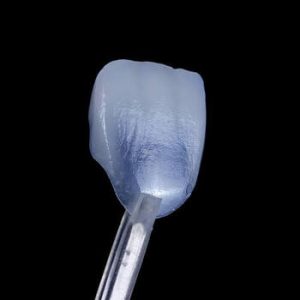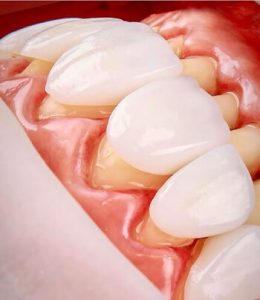Embarking on a smile makeover can be both thrilling and transformative. To amplify the allure of dental veneers, Dubai presents a captivating option by combining treatment with a luxurious getaway, especially with its iconic architectural marvels, such as the Burj Khalifa.
However, it’s crucial to approach dental tourism with a clear understanding of its potential benefits and inherent risks.
This article comprehensively analyses veneers in Dubai, compares the quality of dental care between Australia and Dubai, and offers insights into the veneer treatment process in Australia. Additionally, it explores cost-saving strategies while ensuring that quality and safety are never compromised.
The Allure Of Veneers In Dubai
 Travelling to Dubai for dental veneers is an enticing proposition when contemplating veneers’ smile transformations. The city’s blend of opulence and cutting-edge dental technology offers an attractive package for those seeking to enhance their smile while enjoying a world-class destination.
Travelling to Dubai for dental veneers is an enticing proposition when contemplating veneers’ smile transformations. The city’s blend of opulence and cutting-edge dental technology offers an attractive package for those seeking to enhance their smile while enjoying a world-class destination.
While the idea of veneers in Dubai is appealing, it’s important to recognise the potential risks associated with dental tourism. The quality of dental care can vary, and understanding these risks is crucial for making an informed decision.
Variations In Clinical Standards
One of the primary concerns with dental tourism is the variation in clinical standards across different countries. While many international dental clinics, including those in Dubai, offer advanced technologies and cutting-edge treatments, the quality of care may vary substantially.
Differences In Regulations And Oversight
In Australia, dental practices are regulated by the Australian Health Practitioner Regulation Agency (AHPRA), which enforces strict guidelines and standards to ensure high-quality care. These regulations cover everything from the qualifications and training of dental professionals to the safety protocols in place. In contrast, the regulatory framework in other countries may not be as stringent, leading to potential inconsistencies in care quality.
Equipment And Facilities
Equipment and facilities standards may also differ. While some dental clinics abroad are equipped with state-of-the-art technology, others may not have the same level of resources or maintenance. This disparity can affect the quality and outcome of the treatment you receive.
Communication Barriers
Language and cultural differences can pose significant challenges to dental tourism. Proper communication is crucial for successful dental treatment, ensuring your needs, expectations, and concerns are clearly understood and addressed.
Misunderstandings
Language barriers can lead to misunderstandings between you and your dental provider. Miscommunications about treatment plans, procedures, or post-treatment care can result in suboptimal outcomes or dissatisfaction with the results. It’s essential to ensure that the dental clinic you choose has clear communication channels and offers services in a language you are comfortable with.
Cultural Differences
Cultural differences may also impact your overall experience. Practices and patient expectations can vary from country to country, influencing everything from the approach to patient care to the aesthetic preferences for cosmetic treatments. Understanding these differences can help you navigate your dental tourism experience more effectively.
Infection Control Practices
Infection control is a critical aspect of any dental procedure. In Australia, stringent infection control protocols are mandated to prevent the spread of infections and ensure patient safety. These practices include sterilising equipment, using personal protective equipment, and adhering to hygiene standards.
Potential Gaps In Protocols
In some international clinics, infection control practices may not always meet the same high standards. Differences in protocols and practices may increase the risk of infections or complications. It is important to enquire about the infection control measures and ensure they align with best practices.
Follow-Up And Service Issues
A key aspect of dental care is the availability of treatment follow-up support. In Australia, many cosmetic dentists offer comprehensive follow-up care for their work, ensuring that any issues can be addressed promptly.
Difficulties In Seeking Redress
Accessing follow-up care or addressing issues can be more complicated when undergoing dental treatment abroad. Distance and differences in healthcare systems can make it challenging to seek redress or adjustments if the outcome is unexpected. This can impact your overall satisfaction and the long-term success of your dental treatment.
Types Of Dental Veneers In Australia
Understanding the different types of dental veneers available is essential for making an informed decision about your treatment. Different types of dental veneers enhance your smile a little differently, allowing you to select the best option for achieving your desired smile transformation. Here’s a detailed look at the main types of dental veneers utilised in Australia: porcelain and composite veneers.
Porcelain Veneers
Porcelain veneers are highly regarded in cosmetic dentistry for their outstanding aesthetic qualities and durability. They are crafted from high-quality ceramic material and custom-made to fit the contours of your teeth precisely. One of the primary benefits of porcelain veneers is their ability to mimic the natural light-reflecting properties of natural tooth enamel, resulting in a remarkably natural smile. They are particularly well-suited for addressing various cosmetic issues, including discolouration, chips, and minor misalignments.
Porcelain veneers are known for their durability and resistance to staining. With proper care, they can last 10 to 15 years or even longer, making them a long-term investment in your smile. Their stain resistance is a major advantage for individuals who consume foods and beverages known to cause staining, such as coffee or red wine. Furthermore, the strength of porcelain allows these veneers to wonderfully correct various dental imperfections and enhance the overall appearance of your teeth.
However, applying porcelain veneers typically involves some preparation of the natural tooth structure. This may include removing a small amount of enamel to ensure a proper fit and optimal adhesion. Additionally, porcelain veneers are generally more expensive than other veneers. Patients may find the investment worthwhile despite the higher cost due to porcelain veneers’ great aesthetic and functional benefits.
Composite Veneers
Composite veneers offer a more affordable alternative to porcelain veneers, providing a practical solution for those looking to enhance their smile without the higher cost. Made from a tooth-coloured resin, composite veneers are applied directly to the teeth. This process allows for swift results and the ability to make quick adjustments if necessary. Composite veneers are versatile and suitable for addressing minor cosmetic issues and achieving an attractive smile.
One of the key benefits of composite veneers is their cost-effectiveness. They present a budget-friendly solution for smile enhancement, making them an attractive choice for those who seek an economical yet useful treatment option. Composite veneers can be adjusted and reshaped relatively easily, providing flexibility in achieving the desired aesthetic.
However, composite veneers may not offer the same level of durability as porcelain veneers. They are more prone to wear and may require replacement or maintenance sooner, typically within 5 to 7 years. Composite materials are also more susceptible to staining than porcelain, which may affect the appearance of the veneers over time. Regular maintenance and good oral hygiene routines are necessary to prolong their lifespan and maintain their appearance.
Getting Dental Veneers In Australia: What To Know
A thorough understanding of the veneer treatment process is essential for managing expectations and ensuring a successful outcome. The following sections outline what you can expect throughout your journey to a new smile.
Initial Consultation
Your journey begins with a comprehensive consultation with your cosmetic dentist. During this appointment, your dentist will gauge your oral health, discuss your aesthetic goals, and create a precise treatment plan. This initial consultation is crucial for setting realistic expectations and ensuring your treatment plan aligns with your objectives.
Teeth Preparation
To achieve a seamless fit, your dentist will prepare your teeth by removing a small amount of enamel. This step is needed to accommodate the veneers and ensure a natural look and feel. The preparation process is cautiously carried out to ensure optimal results and preserve as much of your natural tooth structure as possible. Depending on your plan, they may also place temporary veneers to protect your prepared teeth while your custom dental veneer is being crafted.
Veneer Application
After preparing your teeth, your dentist will take impressions to create custom-made veneers. These veneers are then bonded to your teeth using a certain adhesive. The bonding process ensures a snug fit and enhances the durability of your veneers. Your dentist will delicately adjust and polish the veneers to achieve a natural and aesthetically pleasing result.
Follow-Up Appointments
Regular follow-up appointments are scheduled, depending on the necessity, to keep track of the condition of your veneers and address any concerns. These visits may be essential for ensuring that your veneers remain in outstanding condition and that your oral health is maintained. Your dentist will guide you on caring for your veneers and maintaining your overall dental health.
Good Oral Hygiene Practices To Follow
Maintaining excellent oral hygiene is crucial for your veneers’ longevity and overall dental health. Proper care ensures that your veneers remain in optimal condition and continue to enhance your smile effectively.
In addition, they can help mitigate gum disease and tooth decay, which are crucial for the health of your natural teeth and veneers. Gum disease can lead to gum recession, which might affect the fit and appearance of your veneers. Tooth decay can compromise the underlying tooth structure, potentially leading to problems with your veneers.
Here’s a deeper look at good oral hygiene practices that are important for veneers.
Regular Brushing
Brushing your teeth at least twice daily with fluoride toothpaste is fundamental to preserving your natural teeth and veneers. Fluoride toothpaste helps to strengthen the tooth enamel and prevent decay, which is essential even when you have veneers. Effective brushing removes plaque, a sticky film of bacteria that can contribute to gum disease and tooth decay if left unchecked. When brushing, using a soft-bristled toothbrush is important to avoid damaging the veneers or irritating the gums. Ensure you brush all surfaces of your teeth, including around the edges of your veneers, where plaque can accumulate.
Daily Flossing
Flossing daily is equally important for maintaining good oral hygiene. Flossing helps to remove food particles and plaque from between your teeth and along the gum line, areas that your toothbrush might miss. For patients with veneers, flossing is vital to prevent the build-up of plaque and tartar around the edges of the veneers, which can lead to gum inflammation and potential decay. Customised floss designed for veneers or dental implants can be used to ensure proper cleaning without damaging the veneers.
Dental Check-Ups
Scheduling regular dental check-ups when required is essential for checking the health of your veneers and overall oral health. During these visits, your dentist will inspect your veneers for any signs of wear, damage, or issues with the surrounding teeth and gums. Regular professional cleanings help to remove any plaque or tartar that has built up, which can’t be addressed through brushing and flossing alone. Your dentist will also provide tailored advice on how to care for your veneers and address any concerns you might have.
Maintaining A Healthy Diet
In addition to brushing, flossing, and regular dental visits, maintaining a healthy diet plays a role in oral hygiene. Avoiding excessive consumption of sugary and acidic foods can help prevent decay and staining of natural teeth and veneers. Eating a balanced diet rich in fruits, vegetables, and whole grains supports overall dental health and complements your oral hygiene routine.
Proper Care For Your Veneers
While maintaining general oral hygiene, specific care for your veneers involves being mindful of habits that could potentially damage them. Avoid using your teeth to open packages or bite hard objects, which can cause veneers to chip or crack. Additionally, if you grind your teeth, consider using a night guard to protect your veneers from excessive wear and tear.
Saving Money On Dental Veneers In Australia
Dental veneers represent a significant investment, but there are strategies to manage costs without sacrificing quality. By exploring various options and making informed choices, you can achieve a stunning smile while staying within your budget.
Explore Payment Plans
Many Australian dental clinics offer flexible payment plans that allow you to spread the cost of veneers over time. These plans can make the treatment more accessible and manageable within your budget.
Check for Insurance Coverage
Some health funds may cover part of the cost of dental veneers. It’s worthwhile to check your insurance policy to understand your coverage and reduce out-of-pocket expenses.
Frequently Asked Questions
Are veneers painful?
The application of veneers is usually not that painful. Local anaesthesia may be used during the tooth preparation process to ensure comfort. Some patients may experience mild sensitivity after the procedure, but this is generally temporary and manageable with your dentist’s guidance.
Can dental veneers’ treatment fix all dental imperfections?
Veneers address a range of dental imperfections, including discolouration, chips, gaps, and minor misalignments. However, they may not be suitable for more complex dental issues or structural problems. Your dentist will assess your specific needs and recommend the most appropriate treatment options.
Can veneers be used to whiten teeth?
Veneers can effectively mask discoloured or stained teeth, providing a whiter and more uniform appearance. However, if your primary goal is teeth whitening, you may consider professional teeth whitening treatments. Veneers are a cosmetic solution that can enhance the appearance of your smile by covering existing discolouration rather than changing the natural colour of your teeth.
What should I do if I experience discomfort with my veneers?
 If you experience any discomfort or issues with your veneers, it is important to contact your dentist promptly. Several factors, including improper fit, bite issues, or underlying dental problems, can cause discomfort. Your dentist will assess the situation and provide appropriate treatment or adjustments to ensure your veneers are comfortable and functioning correctly.
If you experience any discomfort or issues with your veneers, it is important to contact your dentist promptly. Several factors, including improper fit, bite issues, or underlying dental problems, can cause discomfort. Your dentist will assess the situation and provide appropriate treatment or adjustments to ensure your veneers are comfortable and functioning correctly.
Are veneers reversible?
Porcelain veneers are not reversible, as they require removing a small amount of enamel from your teeth. This permanent alteration prepares your teeth to integrate securely with the veneers.
How much do veneers cost in Australia?
The cost of veneers in Australia varies depending on the type and number of veneers you require and the specific dental clinic. Porcelain veneers generally cost more than composite veneers due to their advanced materials and manufacturing processes. On average, porcelain veneers may exceed 1,800 AUD, while composite veneers may start at 411 AUD per tooth. It is advisable to consult with a dental professional for an accurate quote based on your individual needs.
Enhancing Your Smile: What To Consider For Veneer Treatment
The prospect of enhancing your smile with dental veneers in Dubai and a luxurious vacation is undeniably enticing. However, it’s essential to carefully consider the potential risks associated with dental tourism and weigh them against the benefits of receiving treatment in Australia, where stringent quality standards and comprehensive care are assured.
By understanding the different types of veneers, the treatment process, and cost-saving strategies, you can make an informed decision that aligns with your goals and budget.
Consult a qualified cosmetic dentist in Australia for personalised advice and explore your options. Your journey to a stunning smile begins with expert guidance and a commitment to your dental health.
If you’re ready to take the next step towards a stunning smile or have questions about dental veneers, we invite you to contact Beyond Infinity Dental in Castle Hill, Sydney, today at (02) 8806 3799. Our experienced team of dentists will guide you through every step of the veneer process, ensuring you receive high-end quality care and achieve optimal results.
Sources:
Baluch, Anna. “How Long Do Veneers Last? What to Expect.” Forbes Health, 10 Apr. 2024, www.forbes.com/health/dental/how-long-do-veneers-last. Accessed 30 July 2024.
British Dental Association. “Dental Tourism: Patients Need to Know the Risks.” British Dental Assocation, 14 July 2022, www.bda.org/news-and-opinion/news/dental-tourism-patients-need-to-know-the-risks. Accessed 30 July 2024.
Dorwart, Laura. “Everything You Need to Know Before Getting Veneers.” Verywell Health, 2 Sept. 2023, www.verywellhealth.com/veneers-5218581. Accessed 30 July 2024.
HBF Health Insurance. “How to Afford the Cost of Dental Treatment in Australia.” HBF Health, 3 Jan. 2023, www.hbf.com.au/blog/how-to-afford-the-cost-of-dental-treatment-in-australia. Accessed 30 July 2024.
Hunter, Gary Ross. “How Much Do Veneers Cost in Australia?” finder.com.au, 19 Jan. 2024, www.finder.com.au/health-insurance/dental/veneers. Accessed 30 July 2024.
Larson, Jennifer. “Everything You Need to Know About Composite Veneers.” Healthline, 23 Oct. 2019, www.healthline.com/health/composite-veneers. Accessed 30 July 2024.
News-Medical. “Dental Veneers: Procedure and Safety.” News-Medical, 13 Feb. 2023, www.news-medical.net/health/Dental-Veneers-Procedure-and-Safety.aspx. Accessed 30 July 2024.
“Policies, Codes, Guidelines and FAQ.” Dental Board AHPRA, www.dentalboard.gov.au/Codes-Guidelines.aspx. Accessed 30 July 2024.
Sailo, Jenny Lalmalsawmi, et al. “Porcelain Veneers Vs Composite Resin Veneers: A Review.” Journal of Advances in Medicine and Medical Research, vol. 32, no. 24, Dec. 2020, pp. 316–26. https://doi.org/10.9734/jammr/2020/v32i2430784.









